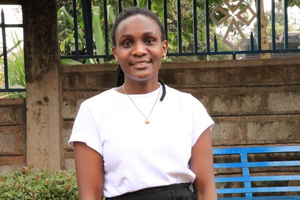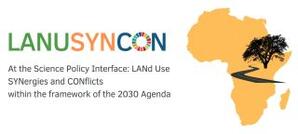Hannah Kamau

Research Title:
Agricultural Practice options to utilize synergies between food production and biodiversity conservation in Kenya
Contact: hannah.nyakio(at)gmail.com
Abstract:
One of the biggest challenge facing Africa is how to reconcile food security with biodiversity conservation. Increasing population in combination with rising and changing food demands are requiring either intensified practices or more land to produce more food, both coming with potentially serious consequences for the environment and biodiversity. However, there is potential in using synergistic practices like diversified farming practices, especially where food and biodiversity challenge is coupled by increasing land demands. In sub-Sahara Africa (SSA) smallholder farmers have small land sizes and heavily rely on them for subsistence agriculture. Despite their small land sizes, smallholder farmers have a high potential to transform agriculture in SSA as they make up the majority of farmers. Consequently, smallholder farmers might play a key role in maximization of synergies for biodiversity conservation and food security through the application of specified agricultural practices. Agricultural systems, in particular smallholder systems, are inherently complex due to their interactions with many different factors including the biophysical environment as well as the socioeconomic settings. Potential impacts on yield, biodiversity and livelihood outcomes like income need to be considered as much as profitability and investments. Decisions need to take this complexity into account to avoid the risk of investment failures and unintended negative consequences.
This study aims to identify agricultural practices with high probabilities of win-win outcomes for both food production and biodiversity conservation amongst the smallholder farmers taking into consideration complex system interactions. The study will be done in Kenya where the population comprises ~70 % smallholder farmers and the majority practicing agriculture firstly for subsistence and then for commercial purposes. To achieve the study objective, I will determine diversified farming practices that are profitable and characterize their biophysical and socioeconomic setting through a systematic review. I will then prioritize these farming practices according to their win-win outcomes for both food production and biodiversity conservation through predicting their associated costs, benefits and risks through a probabilistic modeling approach. Finally, I will test and validate the potential of the prioritized diversified farming practices to improve crop and biomass yield, plant and invertebrate diversity and microbial activity.
This research project is funded by the German Federal Ministry of Education and Research.




